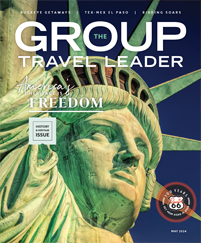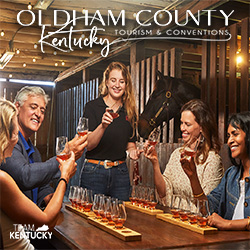Home to the birthplace of Martin Luther King Jr.; the remaining grandeur of the 1996 Olympic Games; and the headquarters of Coca Cola, Delta and CNN, Atlanta is at once a modern metropolis and a crucial cultural, historical and business lifeline for Georgia and the greater American South.
Outdoors in Atlanta
Noah’s Ark Animal Sanctuary is one of the Atlanta area’s best-kept secrets. While many visitors make a beeline for the central Atlanta Zoo, which is currently in the middle of expanding its offerings, those in the know head out of downtown to Locust Grove in the greater metro area to see 100 different species of rescued animals, from cockatoos and capuchins to keekajous and zeedonks.
The sanctuary is best known for its “BLT,” or bear, lion and tiger grouping, unique in that the three animals have been raised together and live in harmony — complete with highly photogenic cuddles. Admission to the sanctuary is free, but groups can opt for a guided tour or a special behind-the-scenes day in the life of the zookeeper.
History in Atlanta
Atlanta’s most significant historical attractions are concentrated in the heart of downtown in an oddly quaint, residential-looking block practically buried among the surrounding skyscrapers. This patch of 1930s to 1960s Atlanta remains untouched by time to commemorate the life and work of Dr. Martin Luther King Jr., who was born in one of the historic homes that make up the National Park Service protected historic site.
Due to its size, King’s birth home can be visited by only 15 guests at a time, but group leaders can work with the park superintendent to work out a rotating itinerary that encompasses various King-related sites. Options include the King Center; the burial sites of Dr. King and his wife, and the adjacent International World Peace Rose Garden; and Ebenezer Baptist Church, where sermons that King gave on-site in the ’60s play for visitors.
Art in Atlanta
A great way to give groups a more hands-on arts experience is puppetry, and Atlanta’s Center for Puppetry Arts, a combination theater, museum and workshop, is happy to oblige.
In 2015, the center reopened after a $14 million expansion that tripled the institution’s footprint and allowed new space for permanent exhibitions, which now include the Jim Henson Company archives in addition to hundreds of retired Muppets and an expanded global puppetry exhibit.
After enjoying a show in the puppet theater, which can include anything from hand-carved marionettes to fantastical fabric models to shadow puppetry, groups can head backstage for a behind-the-scenes look at how the puppets are carved and stitched and then create their own puppets. The museum can also organize a lunch and lecture by a puppet master before or after the tour.
Film in Atlanta
For decades, the Swan House has been one of the gems of the Atlanta History Center’s historic home tours. Staged with original furniture and belongings in the style of the Roaring ’20s, when cotton money brought the high life to the Inman family, the home shows the pinnacle of Neoclassicism in Atlanta. The house and its gardens were designed by the same architect who devised the American Academy in Rome and Georgia Institute of Technology.
Due to its majestic interior and exterior, the home was a natural choice for the president’s mansion when the producers of the “Hunger Games” films came scouting locations, and a special behind-the-scenes tour brings visitors into the film with exclusive memorabilia.
In addition to the site-specific “Hunger Games” tour at the Swan House, groups can take Atlanta Movie Tours’ Girl On Fire excursion for a tour of sites around Atlanta that were dramatically transformed into District 12 and the Capitol of Panem in the second and third installments of the franchise.
New in Atlanta
This summer, the city’s newest adrenaline rush hits Centennial Olympic Park in the heart of downtown. Clocking in at 225 feet, SkyTower Atlanta will feature three signature rides allowing guests to free-fall the full length of the tower, be shot from the base more than 200 feet into the air or take a more relaxed ascent and descent in a rotating glass gondola.
Since the 1996 Olympics, Centennial Olympic Park has gone on to become Atlanta’s cultural epicenter. In addition to long-standing attractions like the Georgia Aquarium, CNN and the World of Coca-Cola, in 2014, two new world-class institutions joined the park. The 42,000-square-foot Center for Civil and Human Rights ties the history of the local struggles and greater American civil rights movement into global issues, and the $66 million, 90,000-square-foot College Football Hall of Fame uses the latest interactive technology and experiential exhibits to put fans in the heart of their favorite game.










